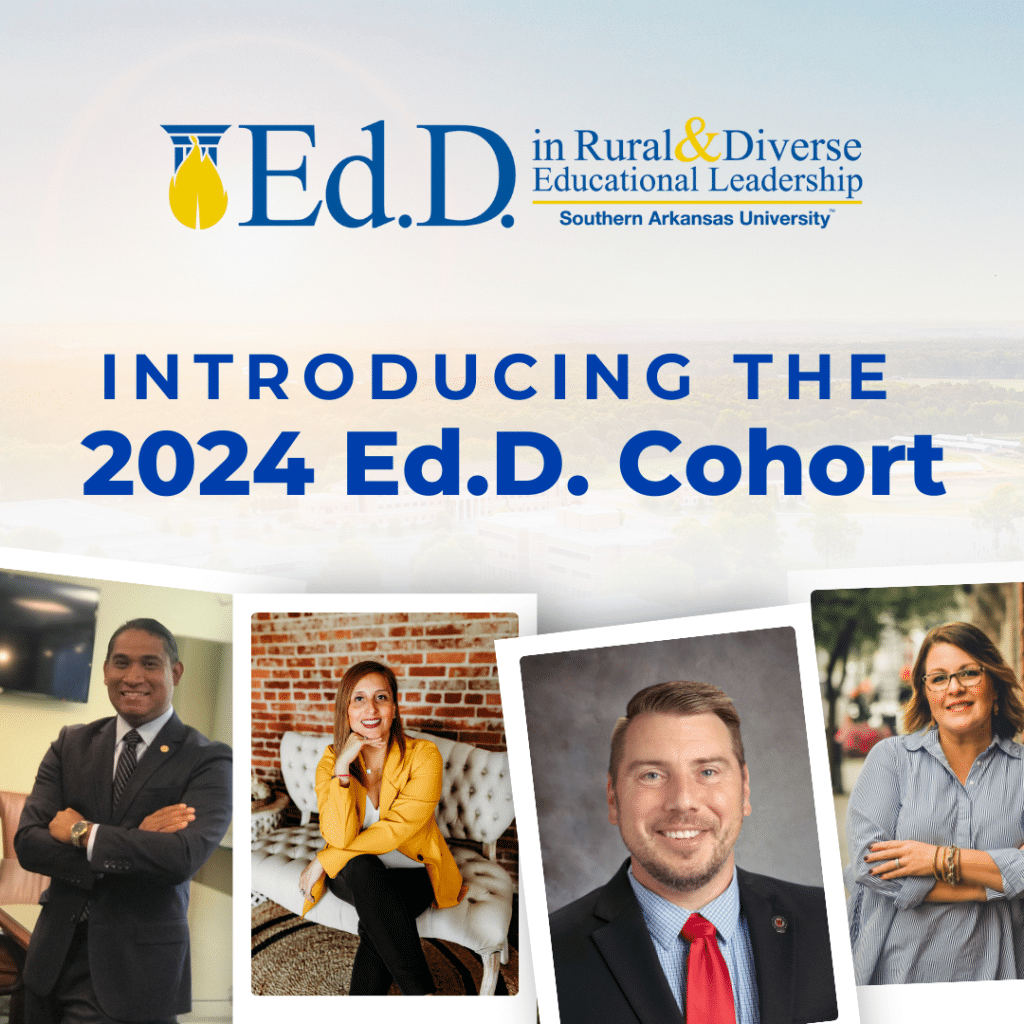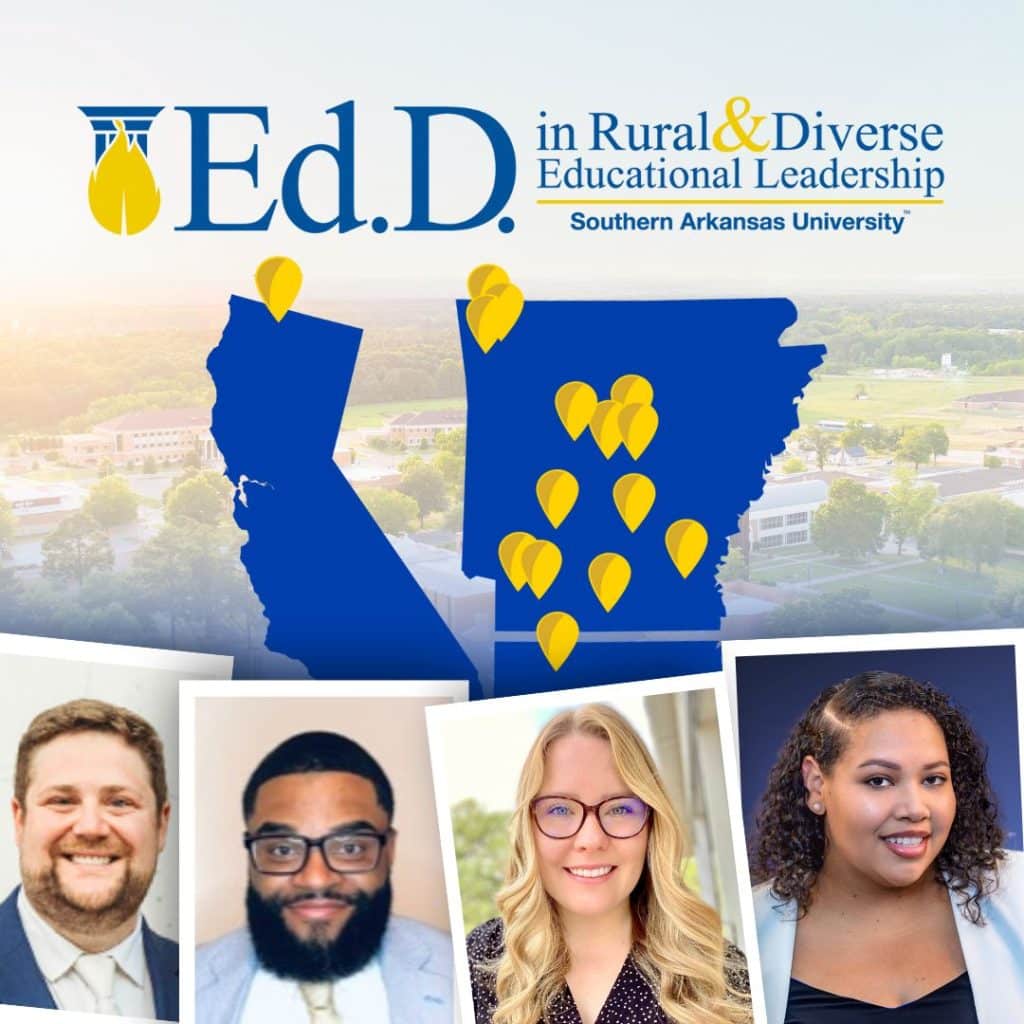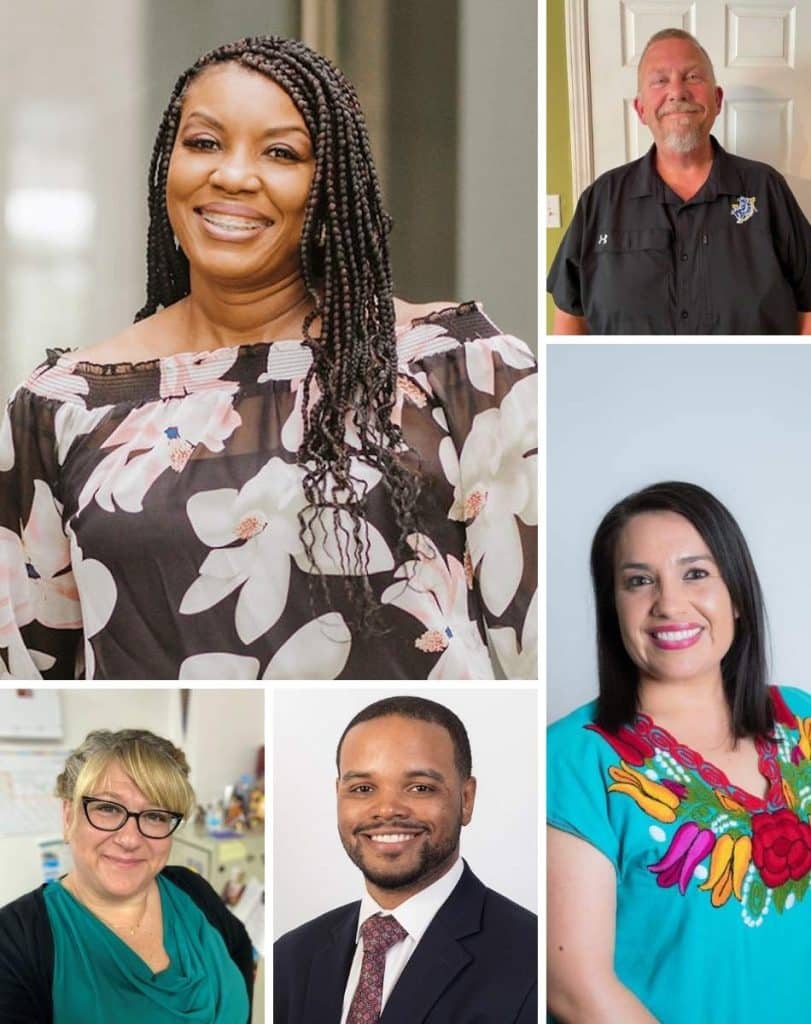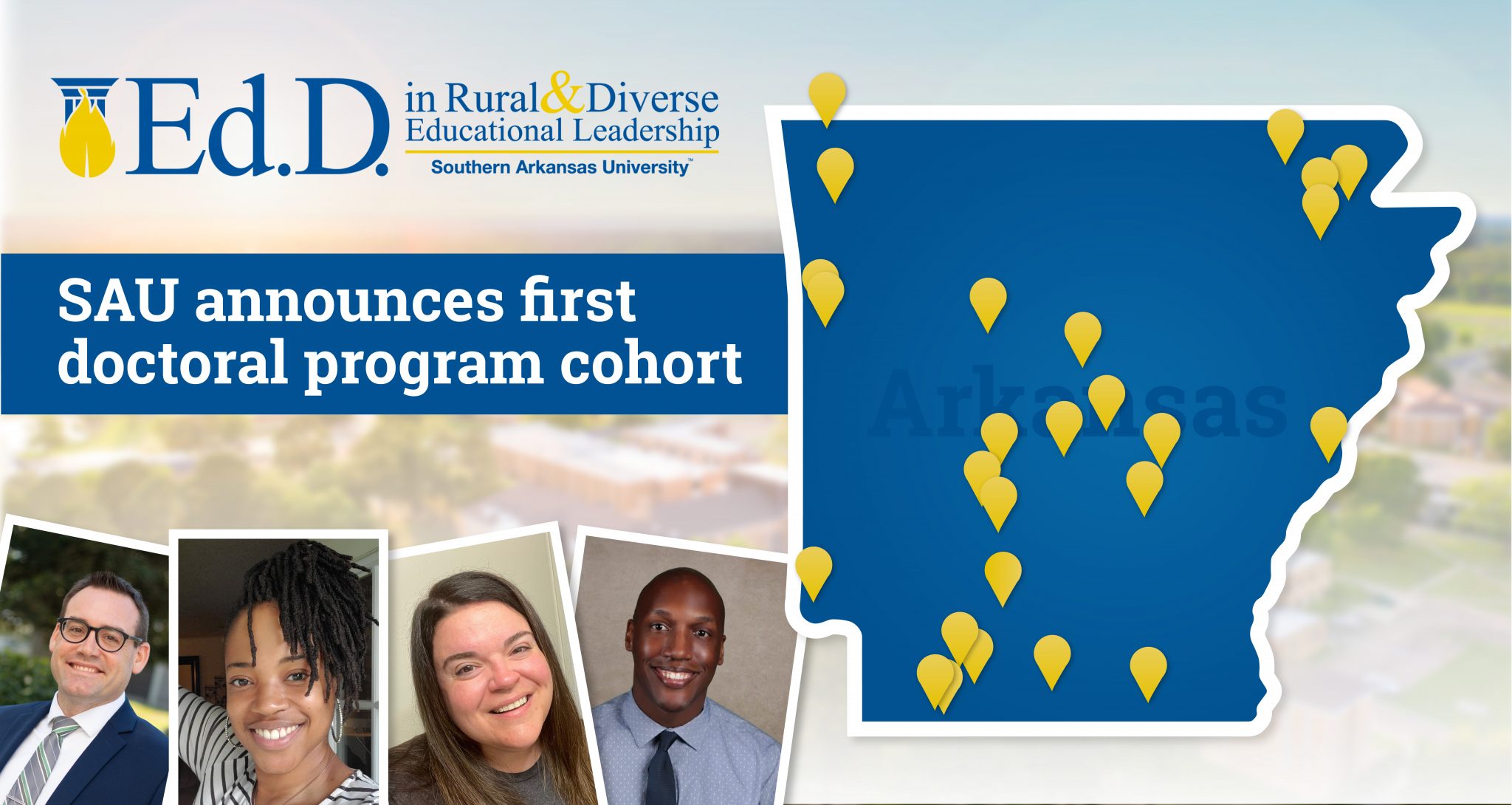SAU proudly presents the 2025 Rural and Diverse Educational Leadership doctoral program cohort
Southern Arkansas University (SAU) proudly presents the 2025 Cohort into the Doctor of Education in Rural and Diverse Educational Leadership Program. The current cohort includes 52 students who showcase a geographically diverse group primarily based in Arkansas, with additional representation from Texas, Louisiana, Colorado, and Illinois. Their locations span urban centers like Little Rock and North Little Rock, as well as rural and suburban communities such as Lexa, Camden, Magnolia, and Helena, highlighting a broad spectrum of backgrounds.
Southern Arkansas University is excited to welcome the 2024 Cohort into the Doctor of Education in Rural and Diverse Educational Leadership program. This year’s cohort consists of 38 diverse professionals who bring a wealth of experience across K-12 education, higher education, and specialized organization and community leadership roles. Students represent not only Arkansas but five other states, with 30% coming from outside the state lines. These states include Louisiana, Mississippi, Oklahoma, Texas, and West Virginia.
Southern Arkansas University welcomes the 2023 Cohort into the Doctor of Education in Rural and Diverse Educational Leadership. The 15 new students span three states, all regions of Arkansas, and include teacher leaders, school administrators, higher education professionals, and community leaders. Each student has a unique story and contribution to education.
Entering its second year, welcoming the first student residing outside the United States, and adding students from Texas and Oklahoma, SAU’s Doctor of Education in Rural and Diverse Educational Leadership grows to include 48 students from 6 states and 2 countries. Alongside 24 returning students who progressed into their second year of doctoral study, 24 students are enrolled in the new 2022 Cohort.
Hailing from every corner and 23 counties of Arkansas, plus Louisiana, Missouri, and Vermont, Southern Arkansas University announces the first cohort admitted into the Doctor of Education in Rural and Diverse Educational Leadership program. The 32-member cohort includes a wide range of educational practitioners from school superintendents, university leaders, college and university teaching faculty, building and district-level administrators, and highly experienced classroom teachers.
Incoming doctoral students are focused on the opportunities ahead. Christopher Cross, manager of the emerging Office of Multicultural Student Engagement at St. Charles Community College in St. Louis, MO, applied to the program because he “wants to be able to engage, explore, and learn more about rural and diverse leadership in higher education. I’m interested in learning how diverse leaders can impact small, rural communities across the country and provide a more global understanding of diversity, equity, and inclusion.






